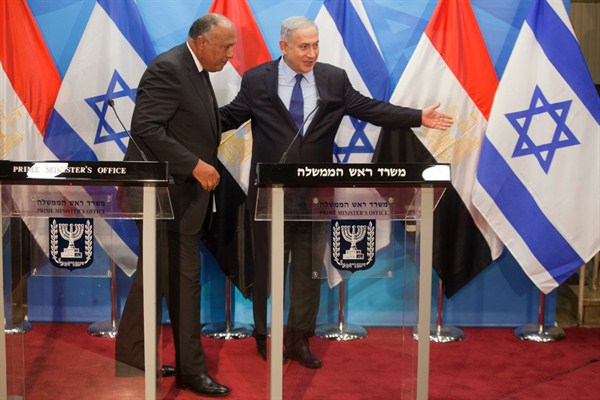The Arab League’s economic boycott of Israel stretches back to the state’s founding in 1948. Today, only two Arab countries, Egypt and Jordan, have formal relations with Israel as a result of peace treaties, while the Arab League’s boycott remains in place for its other members. Yet backdoor cooperation with Israel is growing among some Arab states, creating the prospect of more economic and trade relations. The king of Bahrain, Hamad bin Isa Al Khalifa, reportedly even called for an end to the boycott of Israel in September. In an email interview, Paul Rivlin, an economist and senior research fellow at the Moshe Dayan Center for Middle Eastern and African Studies in Israel, explains the current trade activity and how recent developments, including the sale of Israeli security systems to some countries, are creating new opportunities in the private sector.
WPR: What is the status of trade and private sector ties between Israel and the Arab world?
Paul Rivlin: Israel trades openly, but in a very limited way, with Jordan and Egypt, with which it has diplomatic relations. In 2016, according to official Israeli statistics, two-way trade between Israel and Jordan came to $360 million. Trade between Israel and Egypt was $140 million, and trade between Israel and Morocco, with which Israel does not have formal diplomatic relations, was about $60 million. These relations are mainly at the government-to-government level, while private sector trade is constrained by the government in Egypt and by public opinion in Jordan. Available trade figures only relate to goods and merchandise and therefore do not reveal the amount spent on tourism or on trade in other services, such as banking or transportation. Israeli tourists have been welcomed in Morocco since the late 1970s, although there are no figures on their number. Fuel is also excluded from these figures, which means that Egyptian gas sales to Israel were not counted. Israeli goods and services also reach the Arab countries of the Persian Gulf, often through Europe or Turkey, but there are no figures available. The use of Israeli water technology and security equipment has been reported in the Gulf as well.

